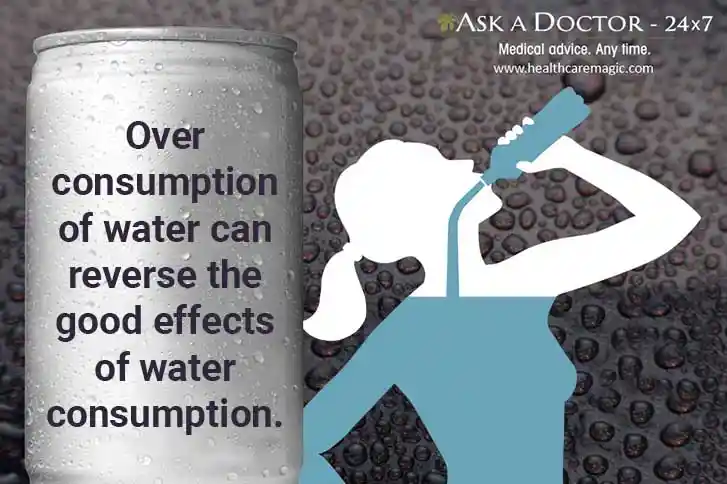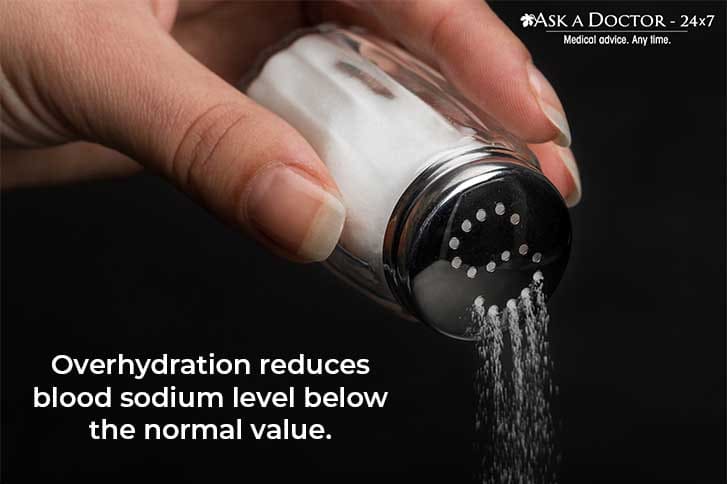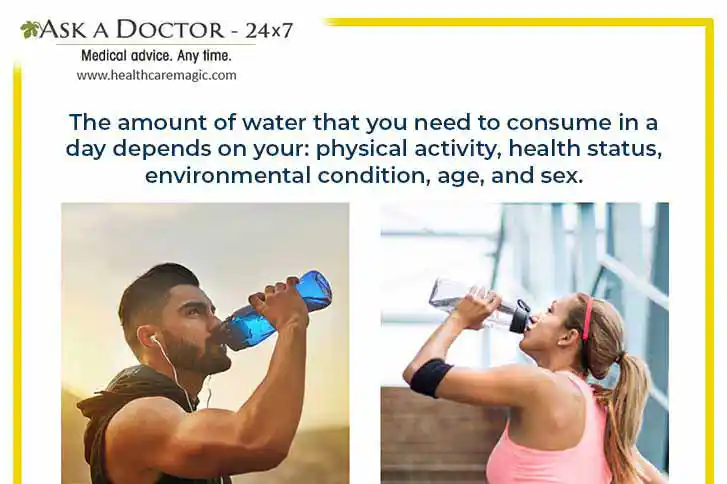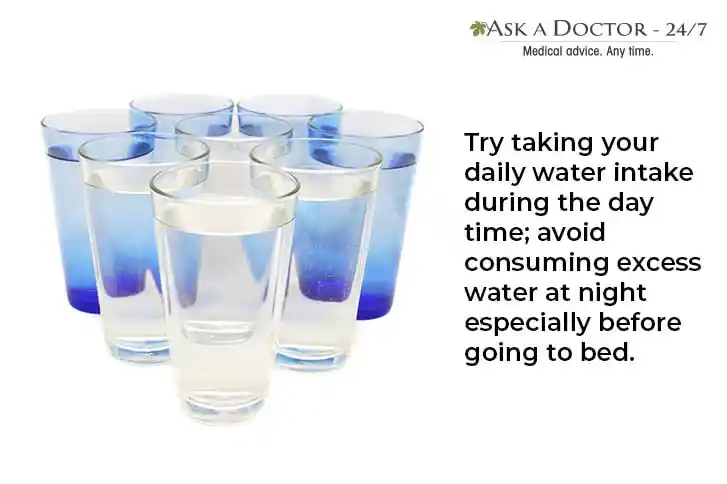What Happens When You Drink Too Much Water?
We all know that water is one of the best healing elixirs for any ailment. It helps to flush out the toxins from our body and let it function smoothly. While it is always advised to drink at least 8 to 12 glasses of water, daily, there are chances that over-consumption of water may lead to certain health problems too. You heard it right! Drinking too much water in a short interval of time can cause hyponatremia or water intoxication – a condition that can get fatal if left unattended.
Give a read to know about the right quantity of water one should drink as per his/her age and stage. Also, explore few facts about why over-hydration is bad for our overall health, as well as find out some easy to incorporate tips to avoid this condition.
How much water is too much to drink in a day?

Various studies have noted that our kidneys can filter and eliminate only about 20 liters to 28 liters of water in a day. But then, it cannot expel more than 0.8 ml to 1.0L per hour. So, in order to avoid hyponatremia symptoms, one must avoid drinking more than 0.8ml to 1.0l of water per hour, on an average.
Having said this, one should always prefer to sit and slowly sip on water rather galloping down a liter in a go.
Why consuming too much of water is harmful?

Consuming too much water can lead to fluid overload in the body. This can cause imbalance in the overall functional capability of some of the vital organs of our body.
Over-hydration:
- Dilutes sodium level in the body, causing the cells throughout our body (including the brain cells) to swell. This condition, called as hyponatremia, can lead to life-threatening circumstances
- Brings down the electrolyte level in the body, which can cause symptoms like muscle spasms, cramping, nausea, and alike conditions.
- Depletes the potassium level in the body, which causes symptoms like leg pain, irritation, chest pain, etc.
- Causes too much urination, which do not let our body to absorb the fluid appropriately.
- Weakens the functioning of kidneys. Our kidney filters the water we drink and make sure that the fluid level in our bloodstream remains balanced. Consuming too much water make the kidneys to work even harder, thus creating a stressful reaction from our hormones – that results in depression and fatigue.
In severe cases, water intoxication could cause overload on the cardiac muscles and can lower down the blood pressure, thus resulting in life-threatening seizures and coma.
What is the ideal quantity of water one should drink daily?

Generally, it is advised to drink around 8 to 12 glasses of water in a day, but this does not get applicable to everyone. The need for water consumption varies from person to person, as it depends on the factors like:
- Physical activity: Water requirement increases during physical activity such as exercise, trekking, or even while shopping in a spree market. Consider drinking a sports drink that contains sodium and other electrolytes to help replenish the electrolytes you lose through sweating.
- Specific health condition: During pregnancy, breastfeeding, fever, vomiting, diarrhea, and in hot climate, one need to consume more water.
- Age and gender: Daily fluid requirement also varies as per age, weight, gender.
The amount of total water intake in a day that is considered healthy for individuals of different age groups is as follows:
- Infants: Six months to 12 months should consume 8ooml to 1000ml water a day.Toddlers: One year to two-year-old toddlers should drink 1,100-1,200ml water a day
- Children: Three year to eight-year-old kids should drink 1,300ml to 1,600ml water a day
- Boys of nine years to 13 year: He should consume 2,100ml water a day
- Girls of nine years to 13 year: She should consume 1,900ml water a day
- Adolescent 14 (boys): He must drink 3.3L water a day
- Adolescent 14 (girls): She must drink 2.3L water a day
- Adult male (19 to 70 years): They should drink 3.7L water a day
- Adult female (19 to 70 years): They should drink 2.7L water a day
- Elderly above 70 years: No generalized recommendation is noted for the elderly as their requirement depends on their health condition or diseases they suffer from, the medications they take, their kidney function (reduced or normal), and other factors.
How can you avoid over-hydration or water intoxication?

You can avoid water intoxication by following some simple rules listed below:
- Do not drink 1 full glass or 2 glasses of water in one go; instead, take small sips and drink slowly. Also, drink at regular intervals
- Do not drink too much water during exercise. You may drink one-fourth of a glass or 3 to 4 sips during exercise, and then quench your thirst with a glass an hour after your workout
- Do not drink water immediately before going to sleep. Instead, drink it an hour before you go to bed
- Avoid drinking water during meal-time. Maintain a gap between your water intake and meals (a minimum of 45 minutes before and after the meal)
The best way to check your hydration level is to observe the color of your urine. Darker urine means you need to drink more water. Straw-color or transparent yellow urine indicates that you are drinking a healthy amount of water, whereas clear urine is indicative of too much water intake.
Stay informed to stay healthy!
For more information on water intoxication, or anything related to healthy eating, and healthy living, you can speak to our Internal Medicine Specialist online, now!
Ask a Specialist
Recent Questions


